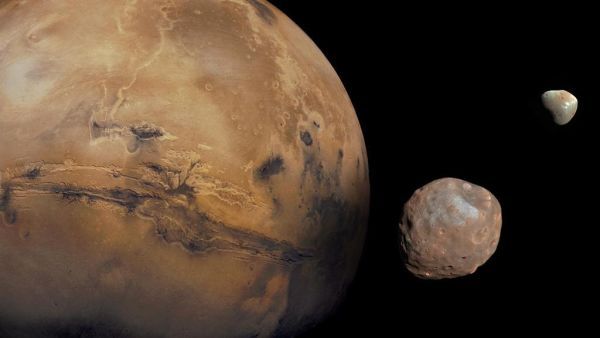The Red Planet is wiggling and wobbling because it spins, analysis within the journal Geophysical Research Letters confirms, and astronomers do not know why.Like a toy prime that teeters because it loses velocity, the poles of Mars are wandering ever-so-slightly away from the planet’s axis of rotation, moving about four inches (10 centimeters) off-center each 200 days or so, researchers reported in a research printed Oct. 13, 2020. That makes Mars solely the second identified planet within the universe to exhibit this phenomenon — generally known as the Chandler wobble — with Earth being the primary, in response to the American Geophysical Union’s (AGU) information weblog, Eos.org.Related: Here’s what NASA’s Opportunity rover noticed earlier than ‘lights out’This wobble — named for astronomer Seth Carlo Chandler, who found the phenomenon greater than a century in the past — is an impact seen in planets that are not completely spherical, science author Jack Lee wrote at Eos. On Earth, the wobble is rather more pronounced: Our planet’s poles wander roughly 30 toes (9 m) from its axis of rotation, wobbling in a round sample that repeats each 433 days or so.This wonky wobble has negligible impact on our planet, in response to Eos, however nonetheless presents a puzzle. Scientists have calculated that the wobble ought to naturally die down inside a century of its origin, however our planet’s present wobble has been going robust for for much longer than that. Something — maybe a mix of strain adjustments within the ambiance and oceans, one 2001 research proposed — appears to be perpetually reigniting the wobble, although the precise mechanism is nonetheless unknown.The Mars wobble is simply as puzzling. The authors of the brand new research detected the wobble utilizing 18 years of information collected by three satellites orbiting the Red Planet: Mars Odyssey, Mars Reconnaissance Orbiter and Mars Global Surveyor. This small shift within the Martian poles must also resolve itself naturally, the crew calculated, however at the moment seems to be going robust.Devoid of oceans, Mars and its wobbly rotation could also be ruled by atmospheric strain adjustments alone, in response to Eos, however additional research of our tipsy neighbor is required to know for positive.You can learn extra concerning the Mars wobble at Eos.Originally printed on Live Science.
Source link
